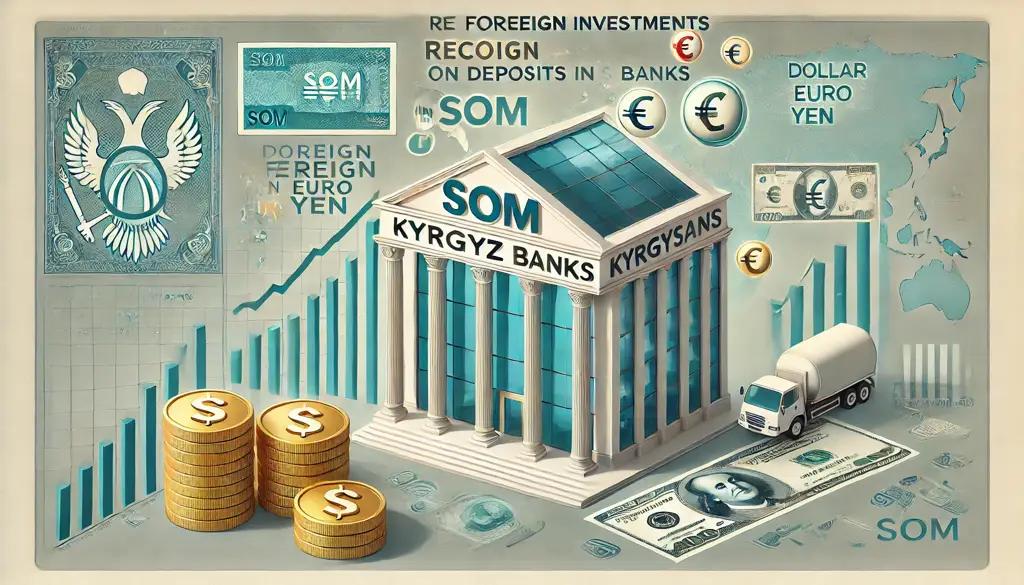
Published
10/02/2024, 17:14The global Islamic finance market reached $4.5 trillion in 2023 and is still growing. In Central Asia, where many previously avoided banking services for religious reasons, Islamic finance has become an affordable alternative. In turn, Kyrgyzstan is keeping up with the trend, not in vain, as these principles exclude interest and are based on fairness and risk sharing. The Akchabar editorial team speaks about the Islamic finance essence.
In 2023, the Islamic finance global market reached $4.5 trillion, doubling in 7 years. This figure will reach $6.7 trillion by 2027, said Deputy Chairman of the Eurasian Development Bank Ruslan Dalenov at the shareholders' annual meeting. These figures demonstrate that a trend for Islamic finance has emerged globally.
In 2023, the Islamic finance global market reached $4.5 trillion, doubling in 7 years. This figure will reach $6.7 trillion by 2027, said Deputy Chairman of the Eurasian Development Bank Ruslan Dalenov at the shareholders' annual meeting. These figures demonstrate that a trend for Islamic finance has emerged globally.
Kyrgyz banks are also complying with modern trends and are actively introducing the ‘Islamic window’ in their activities, and some of them are opening specialised subsidiaries. According to the National Bank of the Kyrgyz Republic, 4 banks currently have a licence for the ‘Islamic window’. Moreover, the republic is even ahead of its neighbours. In particular, just the other day it became known that ‘Eco-IslamikBank’, working based on Islamic principles of financing (IPF), will move from the stage of a pilot project to the status of a full-fledged Islamic bank, and this is for the first time not only in our country but in the CIS as well.
To understand the reasons why Islamic finance is gaining popularity, we should look at the two products more closely. Conventional lending involves the payment of interest, penalties for late payments and possible hidden fees, which increase the financial obligations of an entrepreneur, especially in delayed payments. In contrast, Islamic finance excludes interest and is based on fairness and transparency principles. Firstly, it strictly prohibits the charging or interest payment (riba), making standard interest-bearing loans and deposits unacceptable. Instead, it uses a profit and loss sharing model where risks and rewards are shared between the parties to the transaction, ensuring fairness. Islamic finance also prohibits transactions involving uncertainty (gharar) and gambling (maysir), requiring transparency and being based on real assets. All financial transactions must support the real economy, excluding speculative transactions, and invest exclusively in ethical industries, avoiding areas such as alcohol, tobacco, gambling and pornography, as these are contrary to Islamic values.
To better understand, let's consider the difference through an example.
An entrepreneur decides to borrow an ordinary bank loan to buy resources needed for production. He receives an amount from a bank with an obligation to repay it with interest within a certain period. As a result, in addition to the principal amount, the entrepreneur must pay the interest, which increases the total project cost. If the business does not go according to plan and payments are late, the bank will charge penalties, further worsening the financial situation. As a result, an entrepreneur faces mounting debts and may find himself or herself in a situation where loan repayments become unsustainable.
The situation will develop differently if the same entrepreneur turns to Islamic financing products. Instead of a loan with interest, for example, he/she enters a Murabaha deal. In this case, the bank buys the necessary resources for him/her and sells them at a markup agreed in advance between the parties. An entrepreneur returns to the bank only the amount that was agreed upon in the beginning, without interest or penalties. There is no risk of an unexpected increase in payments, which makes this scheme more predictable.
One can also take advantage of other financing models - Islamic banking includes many financing tools that are Shariah compliant and work for a particular situation. Here are a few of the main ones:
- Murabaha is a sales contract whereby a bank buys goods and sells them to a customer at a premium, agreed in advance. A customer pays the cost of the goods in instalments.
- Ijara - a leasing arrangement where a bank purchases an asset and leases it to a customer for an agreed period. By the end of the term, a lessee can buy back the asset.
- Musharaka - a joint venture wherein a bank and a customer contribute equity shares. Profits are shared in proportion to the contributions and losses are divided based on the capital shares.
- Mudaraba - a partnership in which one party ( a bank) provides capital and the other ( an entrepreneur) manages the business. Profits are shared according to a predetermined proportion and losses are borne only by the capital provider.
- Sukuk - Islamic bonds representing an equity interest in a real asset or project. Sukuk holders receive income from the use of the asset rather than interest.
- Salam - a sales contract in which a customer pays for goods in advance and delivery is made at a future date. It is used to finance agricultural projects.
- Istisna - a commodity contract in which one party pays for a product to be manufactured and delivered in the future.
Thus, domestic banks that have opened an ‘Islamic window,’ provide their products, corresponding to the above-listed financing tools.
As mentioned earlier, the global financial market has seen a steady growth of interest in Islamic finance in recent years. This segment is being actively implemented not only in Muslim countries but also internationally. An example is the Eurasian Development Bank (EDB), which is launching an ‘Islamic window’ in full format in 2025, as, according to the bank's experts, they will be able to attract an additional $2bn by 2028.
It is important to note that financing according to Islamic principles is available to all, regardless of religious affiliation. The emphasis is on ethical and fair financial relationships, making such products attractive to a broad range of people.



